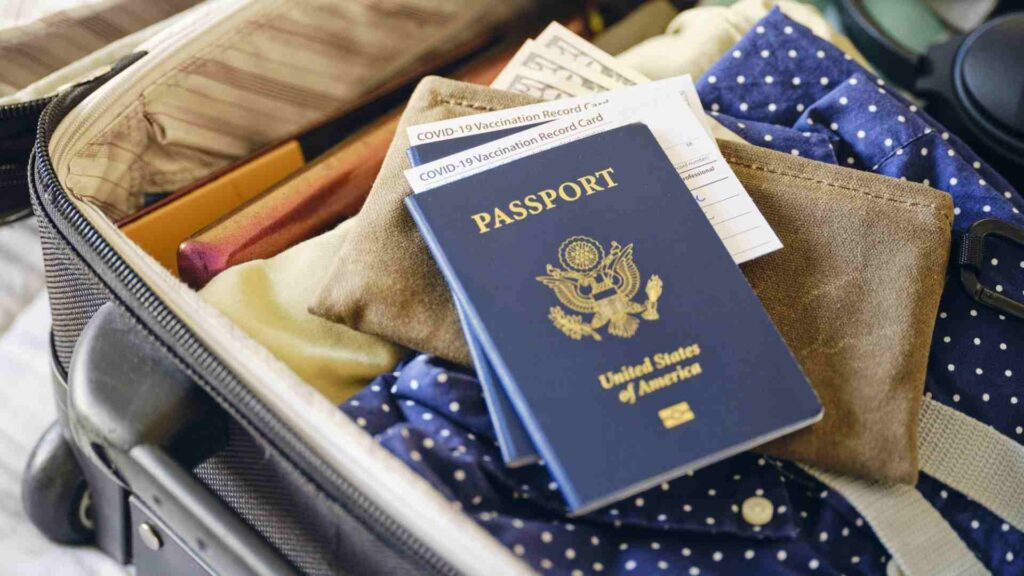Traveling is an exciting adventure that opens up a world of new experiences. However, it also comes with its share of uncertainties. One such uncertainty is the investment in non-refundable flights. What happens if you need to cancel? Will you lose all your money? This is where travel insurance comes into play. Travel insurance can provide a safety net for many unexpected situations, but does it cover non-refundable flights? This article will delve into the intricacies of travel insurance coverage for non-refundable flights, helping you understand when you’re protected and when you might need to dig into your own pocket.
Introduction to Travel Insurance

Travel insurance is a type of insurance that is designed to cover the costs and losses associated with unexpected events incurred while traveling. It is a useful protection for those traveling domestically or abroad, and can cover a range of unforeseen incidents such as trip cancellation, lost luggage, medical emergencies, and more.
The concept of travel insurance is as old as travel itself, but it has evolved significantly over the years. Today, travel insurance is a comprehensive product designed to meet a variety of needs for travelers, providing peace of mind in a myriad of situations that could lead to financial loss.
The coverage provided by travel insurance policies may vary by provider and plan, but they generally cover:
- Trip Cancellation or Interruption: If you have to cancel your trip due to certain circumstances (like illness or a death in the family) or if your trip is interrupted (like a flight cancellation due to bad weather).
- Medical Emergencies: If you get sick or injured while traveling, travel insurance can cover your medical expenses and emergency evacuation if needed.
- Baggage Loss or Delay: If your baggage is lost, stolen, or delayed, you can get reimbursed for new clothes and toiletries.
- Travel Delays: If you’re delayed and end up needing a hotel room or a meal, travel insurance can cover those costs.
Remember, the key to making the most of travel insurance is understanding your policy. Knowing what’s covered, under what circumstances, and how to make a claim can help you navigate the unexpected and enjoy a worry-free travel experience.
Non-Refundable Flights
Non-refundable flights are airline tickets that cannot be returned for a refund. Airlines sell non-refundable tickets as they are typically cheaper than refundable ones, making them attractive to price-conscious travelers. However, the lower cost comes with a risk. If you need to cancel or change your flight, you will not get your money back.
Here’s why they can be a risk:
- Unexpected Changes: Life is unpredictable. Illness, work obligations, or family emergencies can lead to last-minute changes in our plans. If you’ve booked a non-refundable flight, you stand to lose the money you’ve invested in your ticket if you can’t travel.
- Change Fees: While some airlines may allow you to change the date or time of your flight, they often charge hefty change fees. The cost of changing a non-refundable ticket can sometimes be as much as buying a new one.
- No Show: If you miss your flight for any reason, you’ll not only lose the value of that ticket but also any connecting flights on the same booking.
- Airline Policies: Each airline has its own policies regarding non-refundable tickets. Some might offer a voucher or partial credit for future travel within a certain timeframe, but this is usually less than the value of the original ticket.
Coverage of Non-Refundable Flights
Travel insurance can provide coverage for non-refundable flights, but the specifics depend on the policy and the reason for cancellation. Here’s a general overview:
- Covered Reasons: Most travel insurance policies cover a set list of reasons for trip cancellation. If you cancel your trip for a reason listed in your policy (such as sudden illness, injury, death of a family member, or severe weather affecting your destination), you can be reimbursed for your non-refundable flight.
- Exclusions: It’s important to note that travel insurance policies also have exclusions. These are specific situations where the policy does not provide coverage. Common exclusions include changing your mind about traveling, pre-existing medical conditions (unless you qualify for a waiver), and cancellations due to war or civil unrest.
- ‘Cancel for Any Reason’ Coverage: Some travel insurance policies offer an optional upgrade called ‘Cancel for Any Reason’ (CFAR) coverage. As the name suggests, this allows you to cancel your trip for any reason and still receive a portion (usually 50-75%) of your non-refundable costs back. However, CFAR coverage typically needs to be purchased shortly after making your initial trip deposit and it will increase the cost of your policy.
- Claim Limits: Travel insurance policies also have limits on how much they will pay for a claim. Make sure the limit is high enough to cover your non-refundable flight and any other pre-paid expenses.
- Deductibles: Some policies may have a deductible. This is the amount you have to pay out-of-pocket before the insurance kicks in.
Reasons for Cancellation
Travel insurance policies typically cover a variety of reasons for trip cancellation. If you, a traveling companion, or a family member becomes seriously ill or injured, your cancellation may be covered. Some policies even cover mental health conditions if they are diagnosed by a medical professional. If there is a death in your family or among your traveling companions, your trip cancellation may also be covered.
Work-related reasons such as being required to work during the trip, job loss, or relocation are sometimes covered. Severe weather conditions or natural disasters that make it impossible for you to travel or affect your destination can also be a valid reason for cancellation under many policies.
In the unfortunate event of a terrorist incident at your destination or a mandatory evacuation order, your policy may cover your cancellation. If your airline, cruise line, or tour operator goes out of business, some policies will cover the cost of non-refundable expenses. Finally, if you’re summoned for jury duty or required to appear in court, your policy may cover your cancellation.
It’s important to remember that each policy is different, so it’s crucial to read your policy documents carefully to understand what reasons for cancellation are covered.
‘Cancel for Any Reason’ Coverage
‘Cancel for Any Reason’ (CFAR) coverage is an optional upgrade you can add to your travel insurance policy. It provides the most flexibility, allowing you to cancel your trip for any reason that might not be covered by a standard policy.
Here’s what you need to know about CFAR coverage:
- Flexibility: Unlike standard travel insurance, CFAR allows you to cancel your trip for any reason, not just for the reasons listed in your policy. This could include reasons like a change of mind, fear of travel due to a pandemic, or any other personal reason.
- Reimbursement: CFAR coverage typically reimburses a large portion of your pre-paid, non-refundable trip costs. The exact amount can vary, but it’s usually between 50% and 75%.
- Eligibility and Purchase Window: To be eligible for CFAR coverage, you usually need to insure 100% of your pre-paid, non-refundable trip costs and purchase the coverage within a specific time frame of making your initial trip deposit, often within 10-21 days.
- Cancellation Window: To make a CFAR claim, you typically need to cancel your trip and notify your insurer no less than 2 days before your scheduled departure date.
Does Travel Insurance Cover Expired Passport Issue?
Remember, terms can vary greatly between policies, so it’s important to read the fine print and understand exactly what’s covered before purchasing CFAR coverage.
How to Claim

Filing a claim for a non-refundable flight with your travel insurance involves several steps:
- Notify the Insurer: As soon as you know you need to cancel your trip, contact your travel insurance provider. They can guide you through the claims process and let you know what documentation you’ll need to provide.
- Gather Documentation: Depending on the reason for your cancellation, different documentation may be required. This could include medical records, a death certificate, proof of travel disruptions, or any other relevant documents that support your claim.
- Complete a Claims Form: Your insurer will provide a claims form that you’ll need to fill out. Be as detailed as possible and include all the necessary information.
- Submit Your Claim: Once you’ve filled out the claims form and gathered all necessary documentation, submit your claim to the insurance company. This can usually be done online, by mail, or by fax.
- Claim Review: After you’ve submitted your claim, the insurance company will review it. This process can take several weeks.
- Claim Outcome: Once the review is complete, the insurance company will let you know whether your claim has been approved or denied. If it’s approved, they will reimburse you for your non-refundable flight up to the limit specified in your policy.
Remember, each insurance company has its own claims process, so it’s important to contact your insurer for specific instructions. Also, it’s crucial to be honest and provide all the necessary details when filing a claim. False or misleading information can lead to a denied claim and potential legal consequences.
Tips and Advice
When it comes to purchasing travel insurance, here are some tips and advice to consider:
- Understand Your Needs: Before purchasing travel insurance, assess your needs. Are you traveling domestically or internationally? Do you have any pre-existing medical conditions? What activities will you be doing? The answers to these questions can help determine what type of coverage you need.
- Read the Fine Print: Travel insurance policies can be complex. Make sure to read the fine print so you understand what is and isn’t covered. Pay special attention to the list of covered reasons for trip cancellation, policy exclusions, and coverage limits.
- Compare Policies: Don’t just buy the first policy you see. Take the time to compare policies from different insurers. Look at the coverage, limits, exclusions, and price.
- Consider ‘Cancel for Any Reason’ Coverage: If you want the most flexibility, consider adding ‘Cancel for Any Reason’ (CFAR) coverage to your policy. This allows you to cancel your trip for any reason and still receive a portion of your non-refundable costs back.
- Buy Early: It’s usually best to buy travel insurance shortly after making your initial trip deposit. This maximizes your coverage period and may make you eligible for certain benefits, like pre-existing condition waivers or ‘Cancel for Any Reason’ coverage.
- Keep Receipts: If you need to file a claim, you’ll need to provide proof of your expenses. Keep all receipts related to your trip.
- Know How to File a Claim: Understand the process of filing a claim before you leave for your trip. This includes knowing what documentation you’ll need to provide and how to contact your insurer while you’re away.
Remember, the goal of travel insurance is to help protect you from financial loss when traveling. By following these tips, you can choose the policy that best fits your needs and travel with peace of mind.
FAQs
Q 1. Are there any specific airlines that offer more flexibility for non-refundable tickets?
Ans. Policies can vary greatly between airlines, and many have made changes in response to recent global events. It’s always best to check the specific cancellation and change policies of an airline before booking.
Q 2. How does travel insurance handle flight cancellations due to airline strikes or mechanical issues?
Ans. Most travel insurance policies do not cover flight cancellations due to airline strikes or mechanical issues as these are typically the responsibility of the airline. However, some comprehensive policies may provide coverage.
Q 3. Does travel insurance cover additional expenses incurred due to a flight cancellation, such as accommodation or meals?
Ans. Yes, many travel insurance policies will cover reasonable additional expenses incurred due to a covered flight cancellation. This can include accommodation, meals, and transportation.
Q 4. What are some examples of documentation needed when filing a claim for a non-refundable flight?
Ans. Documentation can include proof of your flight booking, receipts for any additional expenses, medical records if cancelling due to illness or injury, and any communication from your airline regarding the cancellation.
Q 5. How long does it typically take to process a travel insurance claim for a non-refundable flight?
Ans. The processing time can vary depending on the insurance company and the specifics of the claim, but it typically takes between 2-4 weeks.
Q 6. Are there any alternatives to travel insurance for protecting non-refundable flights?
Ans. Some credit cards offer trip cancellation and interruption protection as a benefit. Also, some airlines offer flexible fares or flight insurance at an additional cost. However, these options may offer less coverage than a standalone travel insurance policy.
Conclusion
In conclusion, understanding the interplay between travel insurance and non-refundable flights is crucial for any traveler. While non-refundable flights can be cheaper, they come with the risk of losing your investment if plans change. Travel insurance can provide a safety net, covering non-refundable flights in many circumstances. However, coverage varies by policy and reason for cancellation.
‘Cancel for Any Reason’ coverage offers the most flexibility, but it comes at a higher cost. When purchasing travel insurance, it’s important to assess your needs, read the fine print, compare policies, and understand the claims process.
Remember, the best insurance is the one that fits your specific needs and gives you peace of mind while traveling. So, whether you’re a frequent flyer or planning your first big trip, make sure you’re covered!

Join Shubham, a finance enthusiast with a mission to empower readers with the knowledge and tools to achieve financial freedom. Discover smart financial advice and unlock your financial potential.


